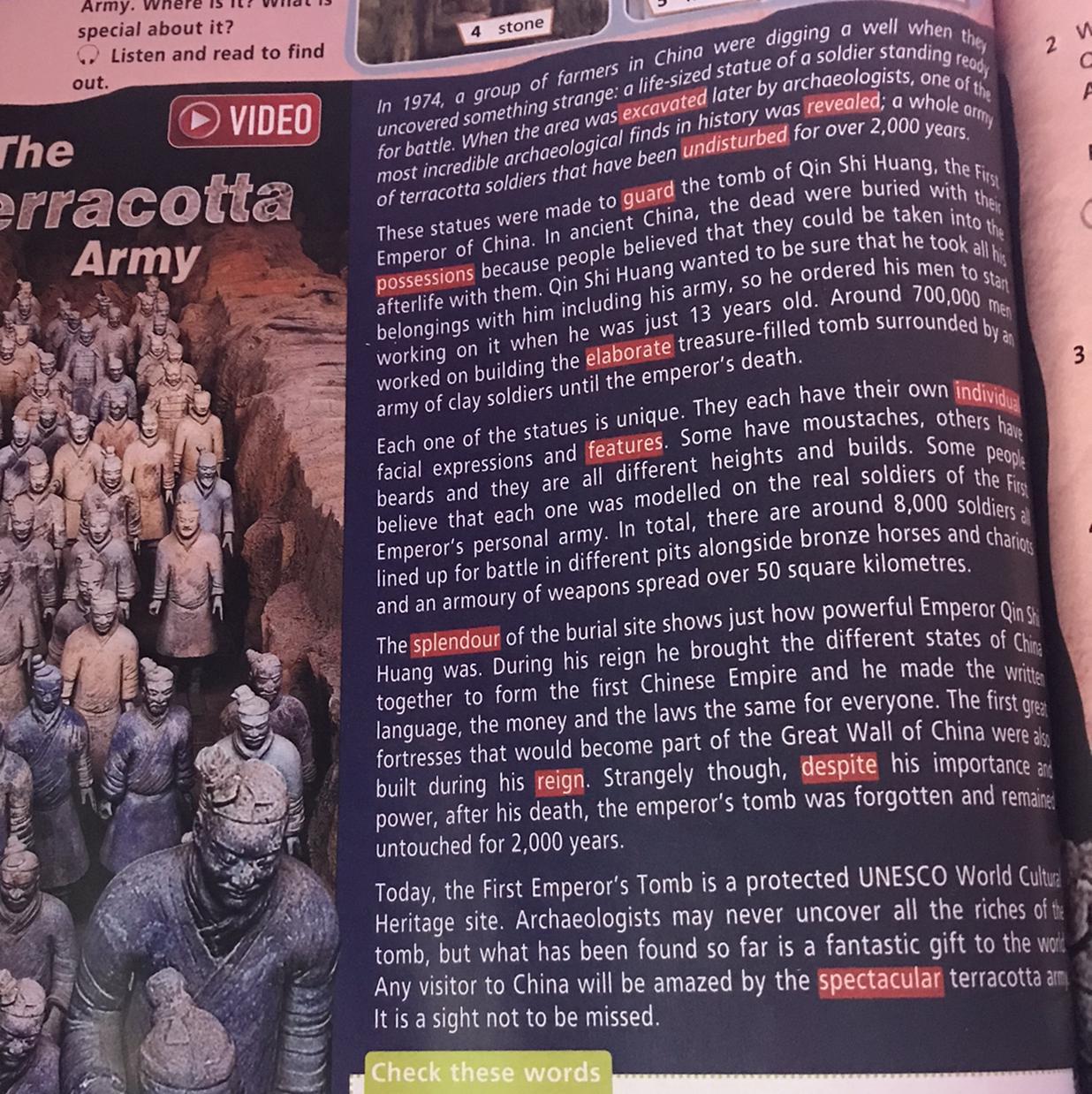Складіть 12 питань за цим текстом і відповіді дякую

Ответы
Ответ:
The Terracotta Army is one of the most exciting archaeological discoveries of our time and is a UNESCO World Heritage Site.
During the severe drought of 1974, (1-D) which
also affected the city of Xian, a group of local peasants tried to dig a well. However, instead of water, the villagers found clay shards. Then archaeologists got involved. This is how one of the greatest discoveries of the 20th century was made.
The Terracotta Army is a legendary guard of full-sized clay warriors, horses and chariots. Terracotta warriors were supposed to (2) protect the interests of the Chinese Emperor Qin Shi Huang in an unfamiliar world. They were buried with him in 210-209. BC.
Emperor Qin Shi Huang. (3) Known in China as the Unifying Emperor, he is famous for having managed to unite the warring Chinese kingdoms under his rule, turning them into a powerful empire. The construction of the Great Wall of China began. The construction of the Imperial Tomb began in 247 BC, 700,000 workers and artisans took part in the construction and lasted 38 years.
Initially, according to ancient Chinese legend, the emperor wanted to bury 4,000 living warriors with him, but the advisers dissuaded the ruler. A cruel act would lead to rebellion and weaken the military power of the empire. Instead (4) they decided to bury the CLAY Warriors, doubling their number.
Although Emperor Qin made great contributions
in the development of the empire, he was known for his cruelty. Hundreds of human skeletons were found in the tomb, many of whom helped build the tomb. They were buried to keep the secret of this place and its treasures. After the treasure was buried and sealed, the gate was closed, (5) locking in all the workers so that no one could get out. Trees and grass were planted over the tomb to make it look like an ordinary hill.
Each warrior had real weapons: spears, shields, bows, crossbows and swords. However, the tomb was plundered during a popular uprising against Ershi Huangdi, (6) who turned out to be a weak and inept ruler.